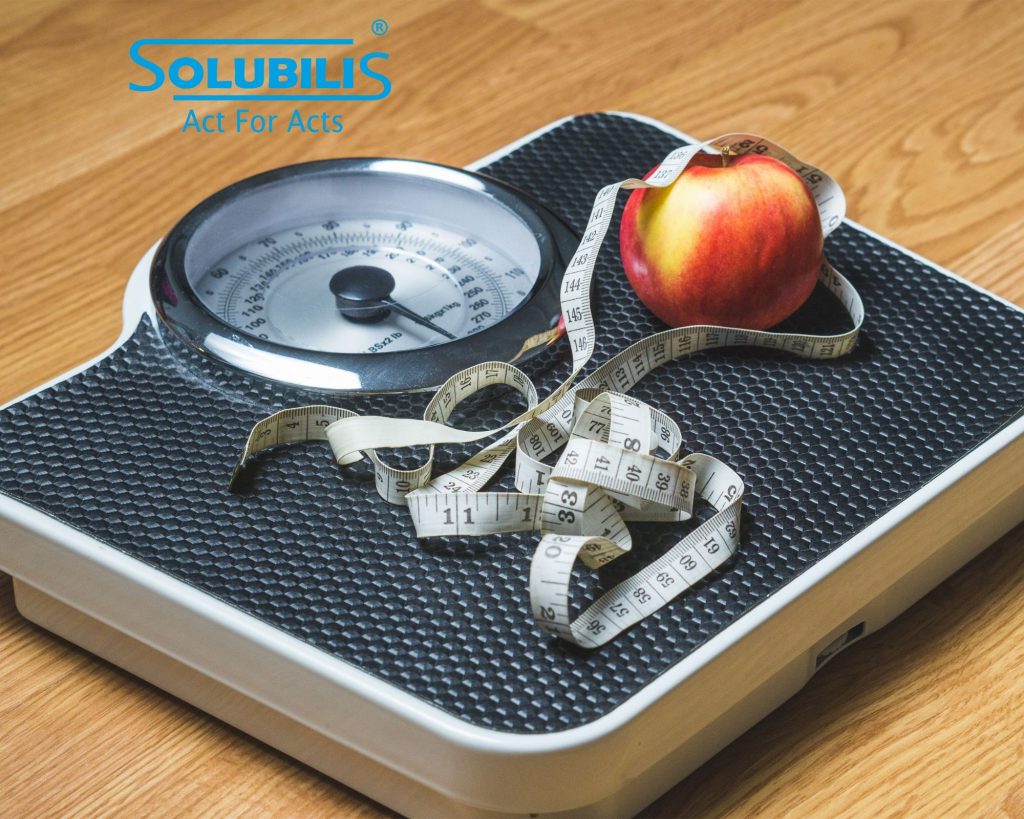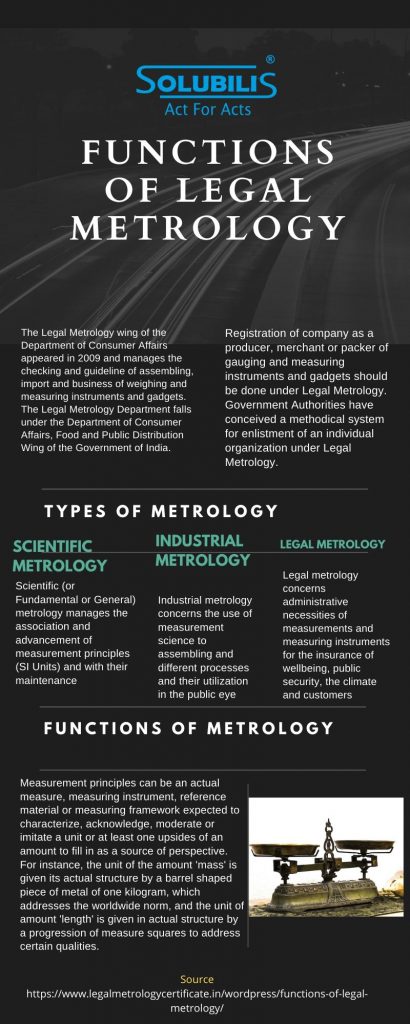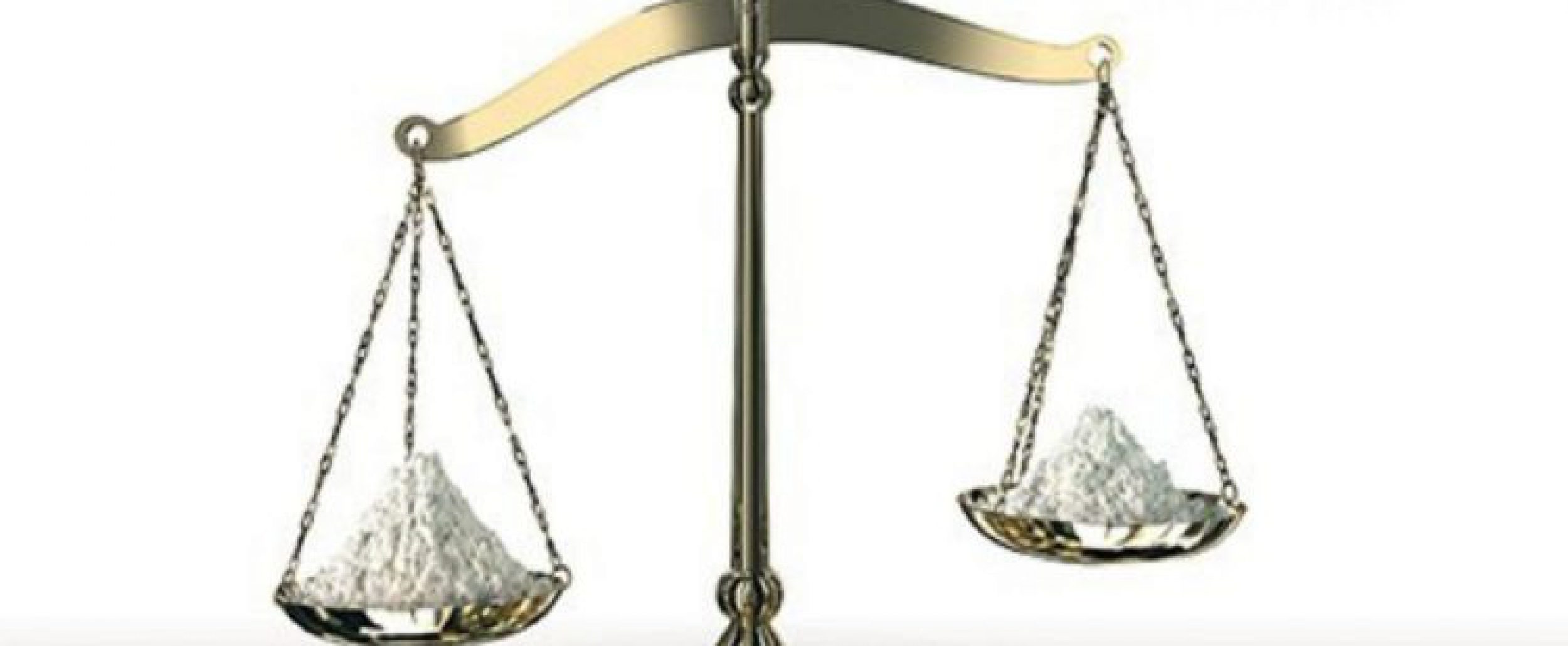Functions of legal metrology

TALK TO EXPERTS
The Legal Metrology wing of the Department of Consumer Affairs appeared in 2009 and manages the checking and guideline of assembling, import and business of weighing and measuring instruments and gadgets. The Legal Metrology Department falls under the Department of Consumer Affairs, Food and Public Distribution Wing of the Government of India. Functions of legal metrology have their important mention.
Registration of company as a producer, merchant or packer of gauging and measuring instruments and gadgets should be done under Legal Metrology. Government Authorities have conceived a methodical system for enlistment of an individual organization under Legal Metrology.
An importer of measuring instruments, contending with one another to work together in the Indian market needs to register itself to acquire the Certificate of Registration of Importer of Weights and Measures. The candidate needs to document the application for enlistment in plan X under Rule 15 and got under section 19 of Legal Metrology Act 2009.
Each weight and measures has the creation by the detail and model drafted by the Govt. of India. Weight and measures used by the vendors are affirmed and ventured by the Inspector of the Legal Metrology Department, after due affirmation, with a seal for guaranteeing the genuineness of the stamp of Inspector and quarter where it is checked.
Types of Metrology
There are three types of metrology. Scientific metrology, industrial metrology and legal metrology.
Scientific metrology (Fundamental metrology)
Scientific metrology manages the association and advancement of measurement principles (SI Units) and with their maintenance. There are distinctive expert regions, for example Mass metrology, Volume metrology, Temperature metrology and Chemical Metrology. It implies the most significant level of precision inside the given region (mass, volume, and so forth) and is enhanced by legal and industrial metrology.
Industrial metrology
Industrial metrology concerns the use of measurement science to assembling and different processes and their utilization in the public eye, guaranteeing the reasonableness of measurement instruments, their alignment and quality control of measurements.
Legal metrology
Legal metrology concerns administrative necessities of measurements and measuring instruments for the insurance of wellbeing, public security, the climate and customers, for empowering tax assessment, and for reasonable trade.

Importance of metrology
Measurements have been done however long civilization has existed. Metrology is essential to the monetary and social improvement of a country. It is worried about giving exact measurements which sway our economy, wellbeing, security and general prosperity.
We measure for all intents and purposes everything: the heaviness of our food, the volume of our fuel, the distance between two focuses, the temperature of the room, the commotion at the working environment and so on Inaccurate measurements lead to wrong choices, which can have genuine outcomes.
Without metrology, life would be troublesome. Envision the accompanying:
- Filling up your vehicle at the service station and not knowing whether you are getting the measure of gas that you are being charged for;
- purchasing produce in the commercial centre and being uncertain if the scale is measuring precisely;
- delivering for send out and being dubious whether your shipment will gauge a similar when it arrives at the bringing in country;
- Overseeing a lifesaving prescription and being uncertain of the measurements.
Functions of metrology
Measurement principles can be an actual measure, measuring instrument, reference material or measuring framework expected to characterize, acknowledge, moderate or imitate a unit or at least one upsides of an amount to fill in as a source of perspective. For instance, the unit of the amount ‘mass’ has given its actual structure by a barrel shaped piece of metal of one kilogram, which addresses the worldwide norm, and the unit of amount ‘length’ is given in actual structure by a progression of measure squares to address certain qualities.
Traceability
Traceability has charcterization as an estimation whereby the outcome can have identification with a reference through a whole chain of adjustments.
The degree of traceability builds up the degree of similarity of the estimation: regardless of whether the aftereffect of an estimation can measure up to the past one, an estimation result a year prior, or to the consequence of an estimation performed elsewhere on the planet.
Regional metrology
An as of late created idea is that of provincial Caribbean Reference Laboratories (CARLs), which will give proficient and practical recognizability to essential amounts at the worldwide level for working guidelines at the public level.
Amounts to have the creation to incorporate mass, volume, temperature, time and recurrence. In 2013, the Bureau of Standards Jamaica (BSJ) was perceived as the first local CARL in the space of mass metrology, and by 2016, the Trinidad and Tobago Bureau of Standards (TTBS) followed, being perceived by the Council of CROSQ as a CARL in temperature, while the BSJ likewise was perceived as a CARL for volume.
The advancement towards the turn of events and acknowledgment of extra NMIs as local CARLs is proceeding, while those all-around set up keep on fostering their degree and scope of capacity.
Conclusion
There are number of business activities that need to go through estimation and weighing for the better presentation. Subsequently to determine this issue government has presented an Act called “Legal Metrology Act”. The motivation behind this demonstration is to keep straightforwardness and lucidity in the business, the demonstration additionally secures the right of the purchaser.
Legal Metrology Act helps in overseeing and decreasing the evil impacts of weight and estimations blunders. The unmistakably characterizes weighing and measuring instruments, units, norms and necessary prerequisites with a point of guaranteeing public assurance from precision and security viewpoint of the loads and estimations.
Legal Metrology Standards in India are characterized and carried out by the government of India, Department of Consumer Affairs under Ministry of Consumer Affairs, Food and Public circulation. While the Legal Metrology Act, 2009 introduced under central jurisdiction has set up as a model demonstration, each state in India has a will to get the demonstration with or without changes. Several states, in any case, have endorsed their own demonstration to deal with the issues and matters related to authentic metrology.


